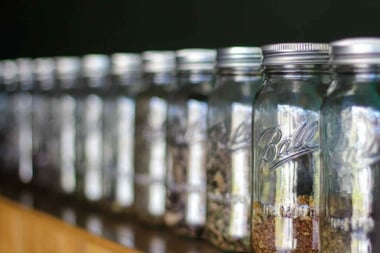Kitchen Corner: Water - how much we need and how to drink it

What helps with metabolism, digestion, clear skin, focus, and organ detoxification? Water. Yep, just water.
Okay foodies and kitchen gadget junkies, water isn’t the most glamorous and inspirational Kitchen Corner post, but stick with me here! It’s the most fundamental component of nutrition, and we all use it for essentially everything in the kitchen—heck, in life! So, let’s embrace those magical faucets.
We all know to drink plenty of water, but how much is plenty? What counts as water? Are you really undoing all your good water work if you have a large glass of red or a coffee?
How much do we need?
Our bodies are more than 50 percent water, and without it, we wouldn’t even last five days. You often hear the 8 cups (2 L) per day rule—but according to the Institute of Medicine’s Food and Nutrition Board, women need more than 11 cups (2.6 L) and men need almost 16 cups (3.8 L)! This is just for an average day; bear in mind that if you are sick or doing strenuous activities, you’ll need even more.
Not all of your fluids need to come from actually drinking water. You will consume around 20 percent of your water intake through your food throughout the day. Other drinks such as juice and milk are comprised of mainly water. Even (gasp!) caffeinated, carbonated, and alcoholic beverages can contribute to water intake. These should of course not be your main source of hydration, as they may contain all of kinds of avoidable chemicals and calories.
Filter?
To filter, or not to filter? Treated water has to meet strict safety standards, meaning that it doesn’t pose any major health threats. That being said, this doesn’t mean that it’s free of contaminants completely. People with ongoing health concerns are more at risk from water contamination.
There are several different types of water filter systems, but no single one will remove all contaminants so it’s important to have your water tested first to ensure that you install the right one. When it comes to filters, maintenance is key; a badly maintained filter could actually make your water quality worse. Also worth noting is that a water filter system will not protect you from water that has been declared unsafe by your water authority. If this happens, you should follow their advice until your tap water is declared safe again.
Flavour!
However you decide to drink your water, here are some healthy, delicious, and different ways to turn H20 into H2Ooohh.




